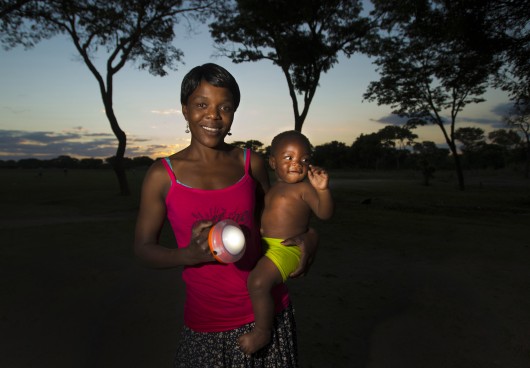All About Renewable Energy in Rwanda

East Africa’s first solar power plant in Rwanda has created 350 local jobs and powers more than 15,000 homes. This use of renewable energy means that Rwanda is on track to achieve its goal of providing half of its population with electricity by 2017.
The $23.7 million project took only a year to complete. The Rwandan government partnered with Gigawatt Global, Norfund and Scatec Solar; all of whom were aided by the president’s Power Africa initiative.
The 17-hectare solar plant is compromised of 28,360 solar panels which are arranged to mimic the shape of the African continent. The panels are computer controlled and tilt to track the sun throughout the day which improves its efficiency by 20 percent, compared to stationary solar panels.
“The speed with which this project was completed is a tribute to the strength of the Rwandan government’s institutions and their laser-focus on increasing Rwanda’s generation capacity as well as to the nimbleness of our team and partners which spanned eight countries,” Chaim Motzen, managing director and co-founder of Gigawatt Global, said.
The plant is 60 kilometers east of the capital Kigali, on land owned by the Agahozo-Shalom Youth Village (ASYV). The village is home to children who were orphaned before and after Rwanda’s genocide in 1994. The lease provided the village with significant income which was invested in schooling and extracurricular activities.
Gigawatt Global will also be implementing solar energy technology training to students at the Liquidnet High School in ASYV.
Rwanda relies on diesel fuel for electrical power which is expensive and highly polluting. It cripples the country’s economic growth and leaves more than 15 percent of the population without electricity.
The installation of the solar power plant has provided a better renewable energy source that has also increased Rwanda’s electrical capacity by 6 percent. Consequently, economic output, social welfare, employment conditions and standards of living have improved.
“We have plenty of sun. Some living in remote areas where there is no energy. Solar will be the way forward for African countries,” Twaha Twagirimana, the plant supervisor, said.
– Marie Helene Ngom
Sources: The Guardian, Cleantechnica, Gigawatt Global
Photo: Flickr
